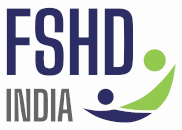Everything we do propels us faster toward treatments and a cure
We often speak of “filling potholes” and “overcoming obstacles” toward treatments and cures, but what the FSHD Society has done is much more dynamic. We are not just bridging gaps but are building springboards that actually propel us faster down the road to treatments. What may seem like random, disconnected projects to a casual observer are, in fact, components of a strategic path to speed up the delivery of treatments and improve the quality of life for everyone living with FSHD.
Consider our first two decades of basic research to uncover the genetic cause of FSHD. It felt painstaking and interminable at the time, but since the breakthrough announcement of the genetic mechanism in 2010, the field has catapulted forward. In short order, for example, the Society funded such scientists as Kathryn Wagner, Peter and Takako Jones, Michael Kyba, Scott Harper, and Robert Bloch, to develop a variety of mouse models which are now used widely to test candidate drugs.
The Society was also a pioneer in funding research on tools to measure how FSHD affects individuals and collaborating on surveys that were used to design clinical trials. Our 2020 Voice of the Patient Report, in which more than 600 of you provided testimonials to the Food and Drug Administration, is a guiding document for all companies designing trials for FSDH therapies.
Breaking new ground
The Society is collaborating with researchers to investigate aspects of FSHD that go beyond muscle weakness, such as sleep disorders, bowel and urinary issues, pulmonary factors, shoulder weakness, and mental health. These efforts could lead to new patient-driven clinical outcomes that could be considered in future clinical trials.
Back in 2018, the Society persuaded the World Health Organization to add a unique medical code for FSHD in the International Classification of Diseases 10th Revision (ICD-10). The code makes it possible to gain more accurate insights into the health impacts and costs of FSHD through the analysis of large medical datasets. This seemingly esoteric effort bore fruit this year when the Society as well as several pharmaceutical companies undertook health economic studies using the code to pull de-identified data on FSHD patients from large datasets of U.S. health insurance and medical records. In addition, we carried out the True Cost of FSHD survey, which more than 300 households completed. All of these data will be analyzed in our study on the socioeconomic cost of having FSHD, which will inform discussions about fair pricing for—and patients’ access to—future FSHD therapies.



